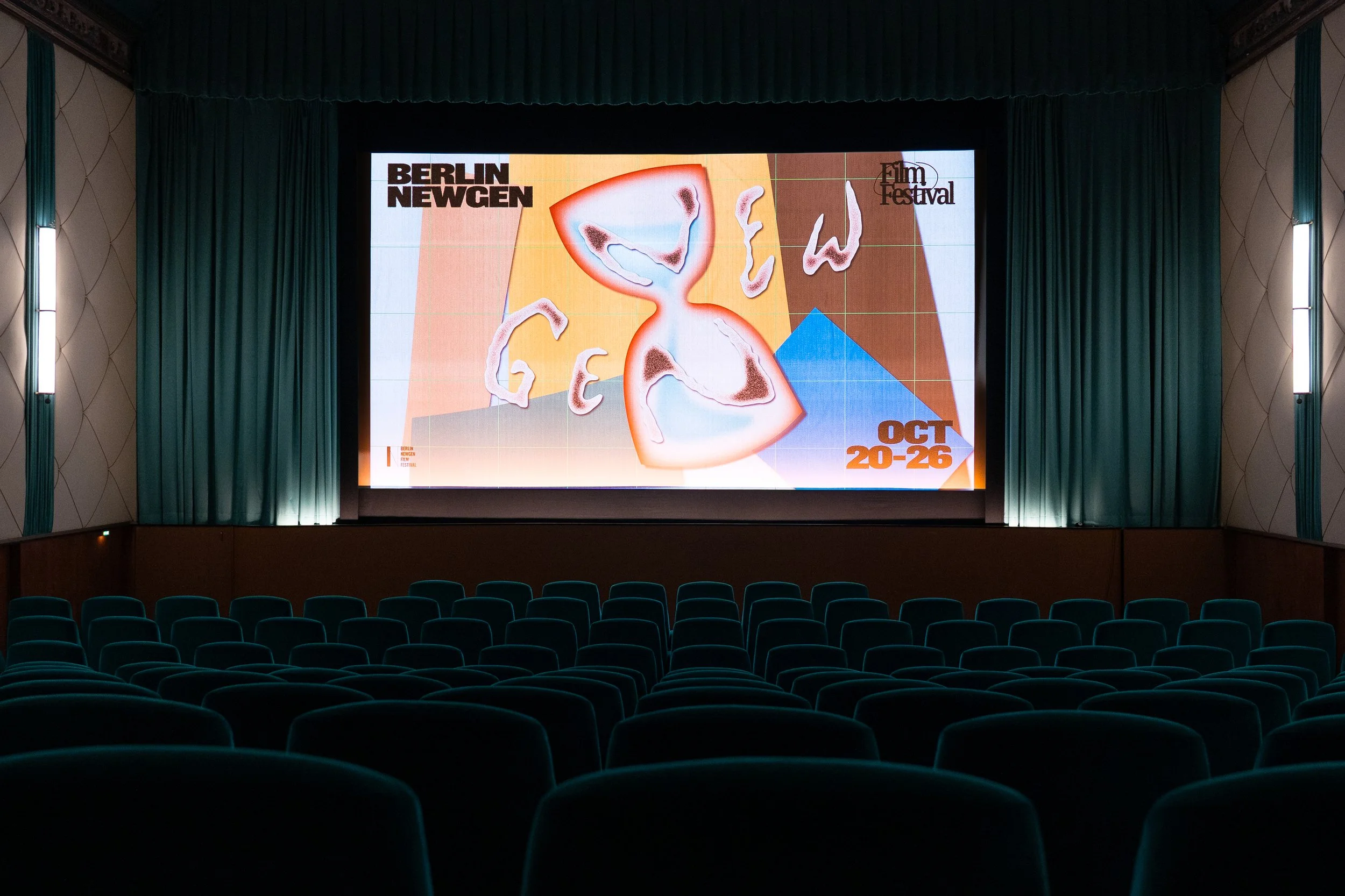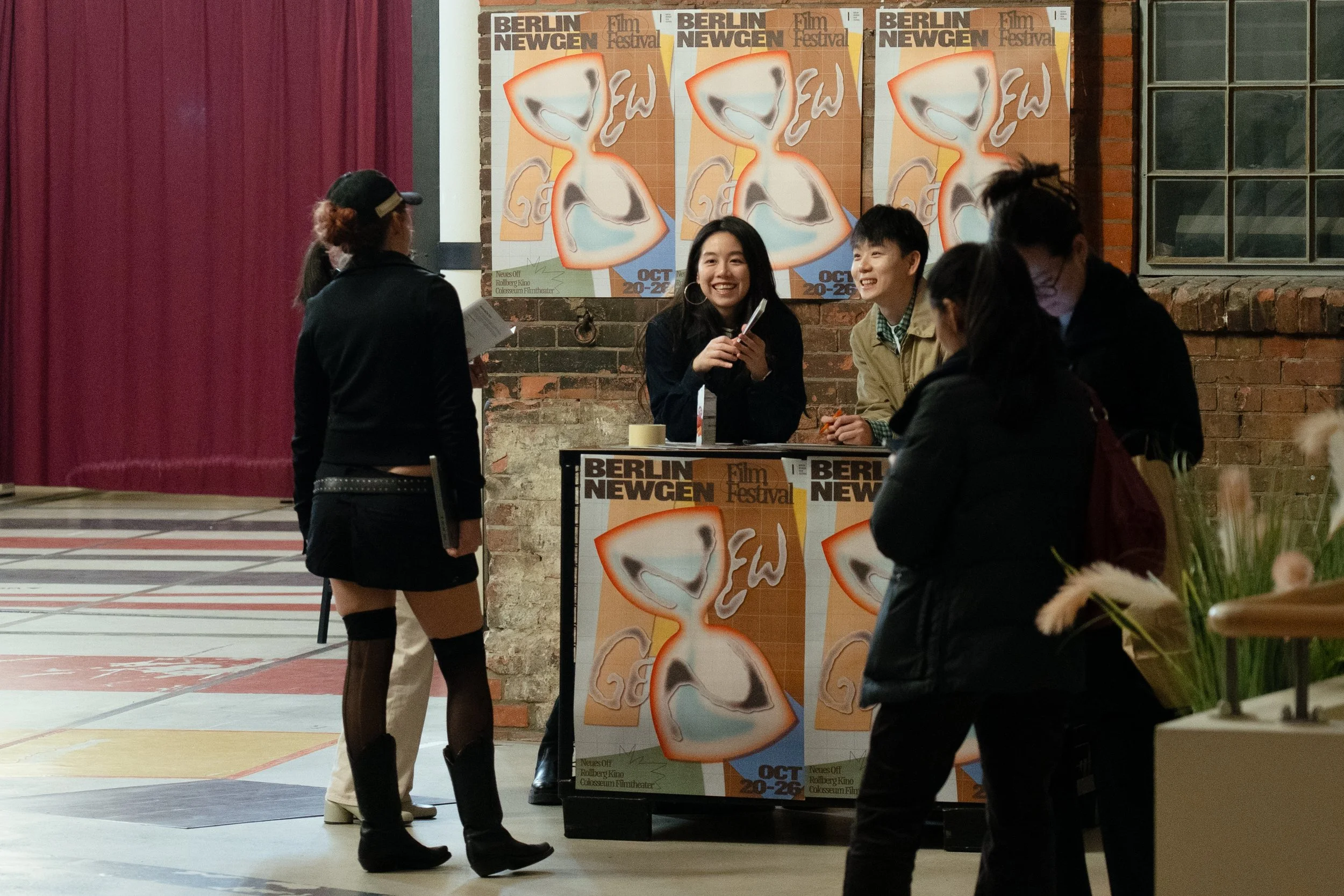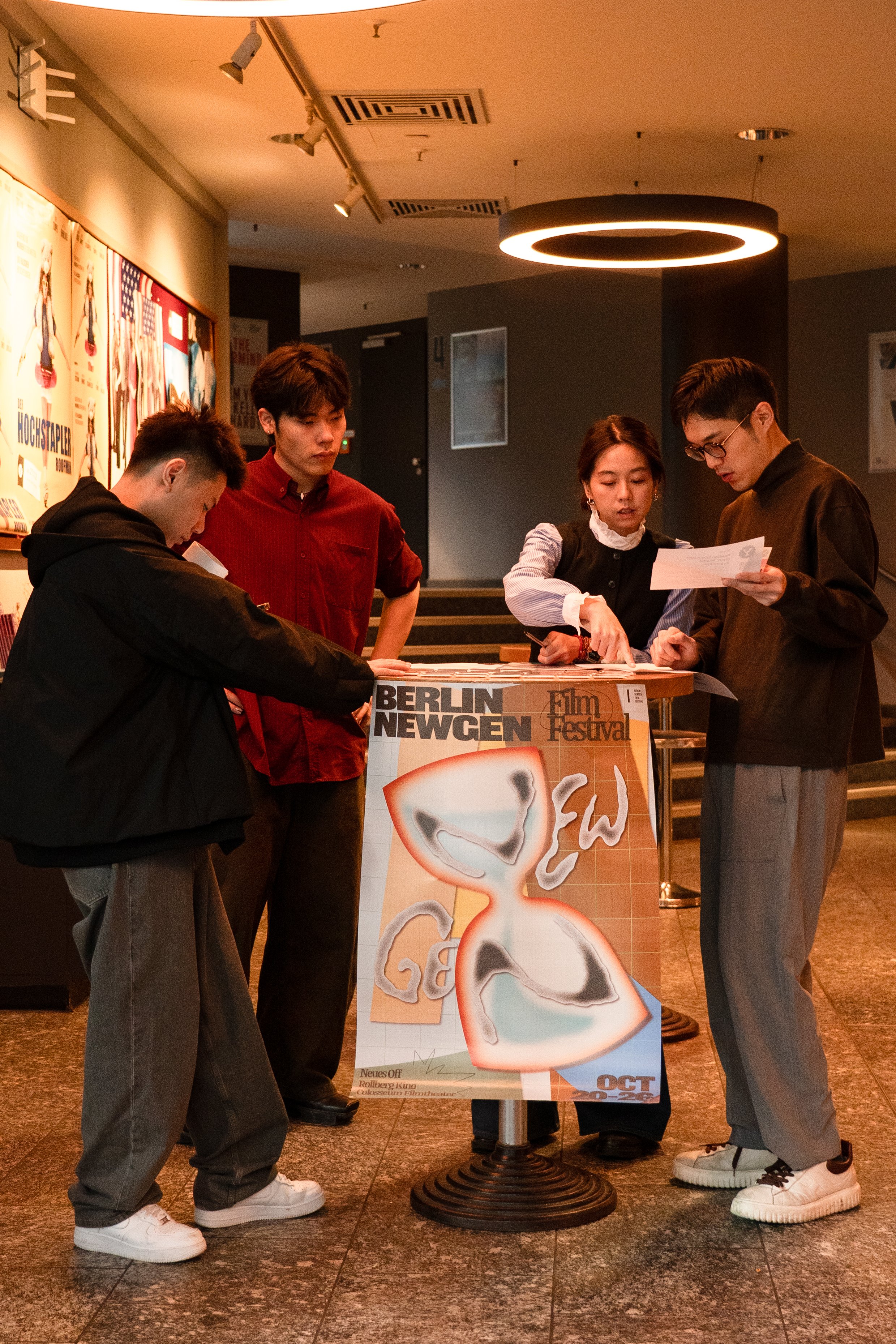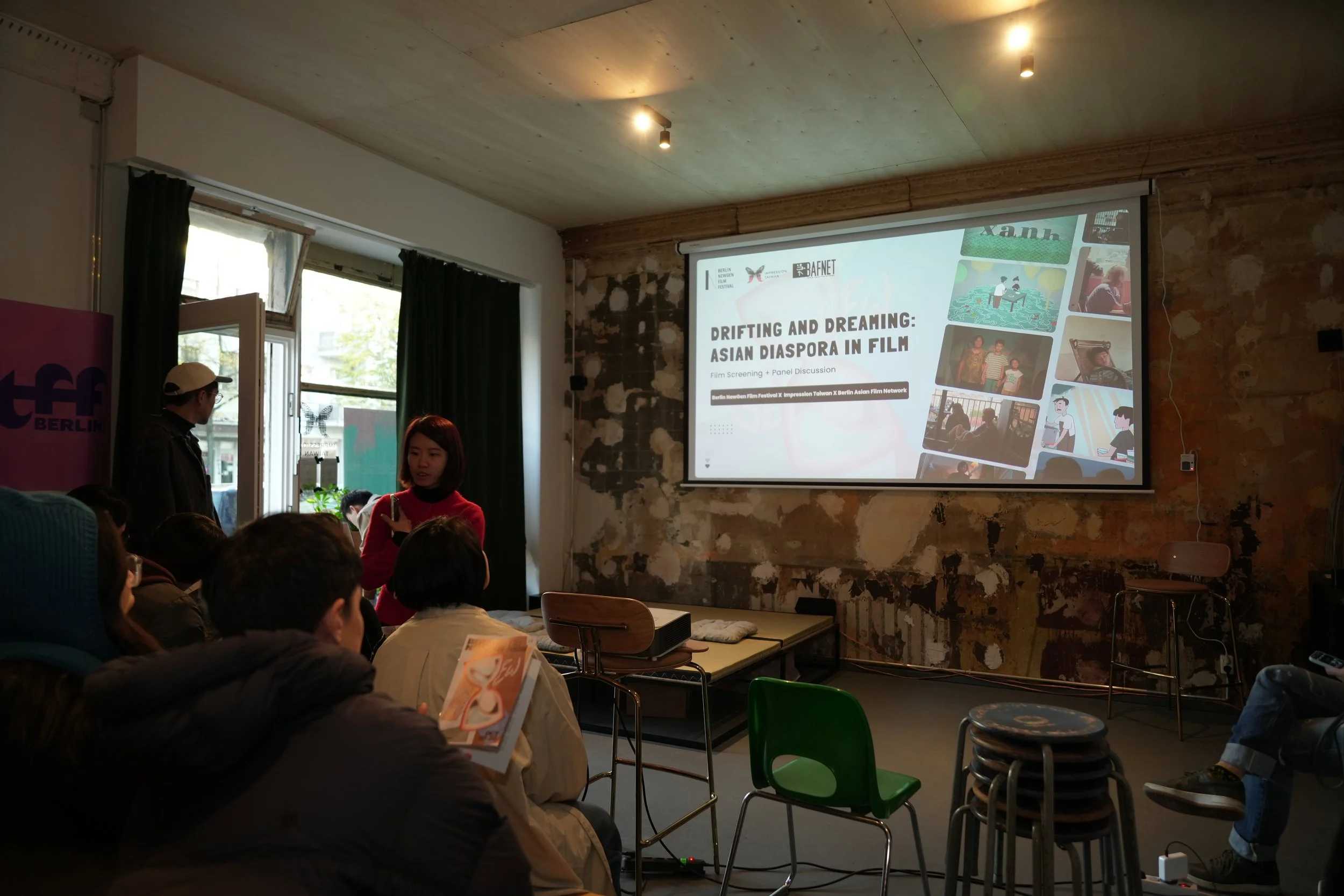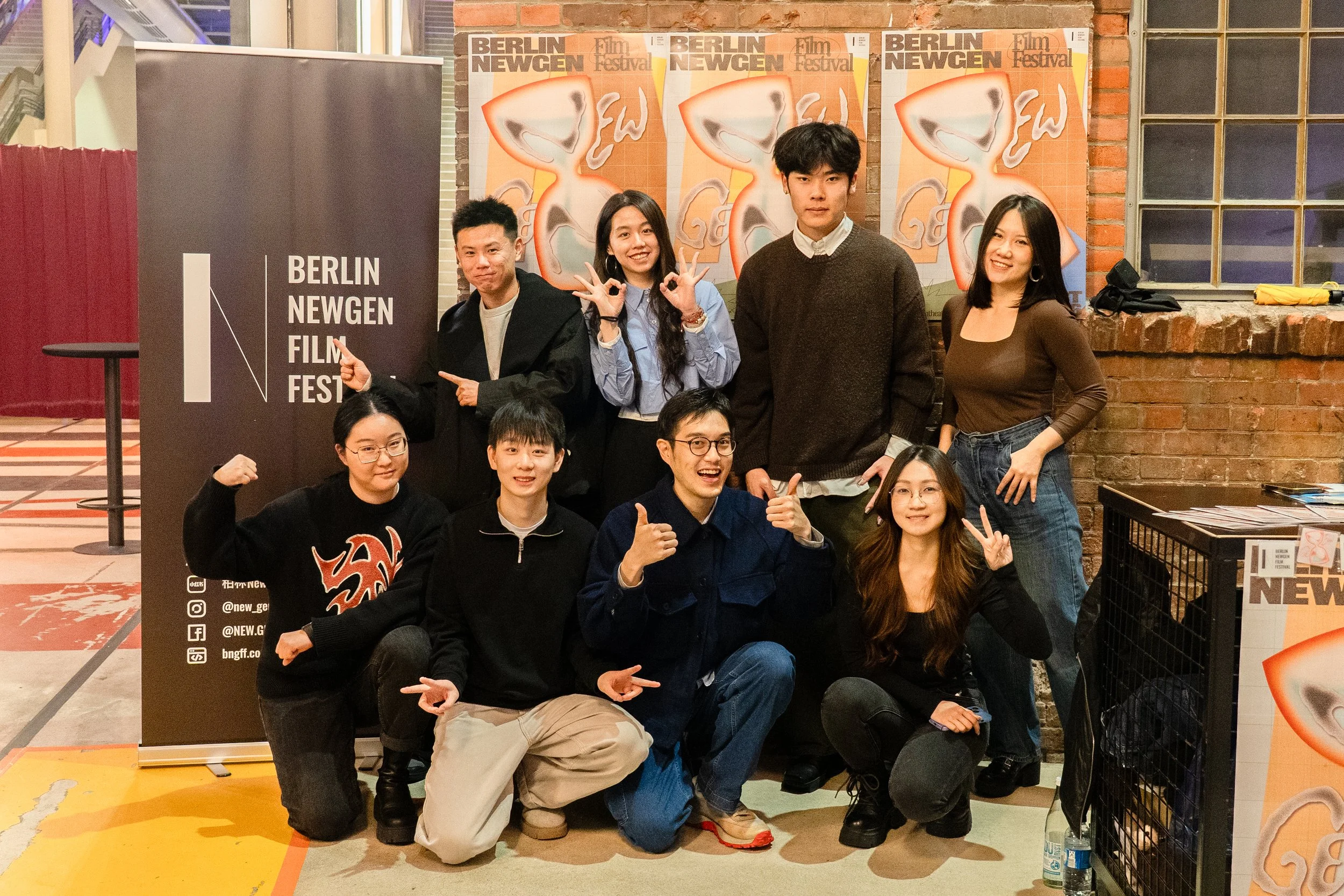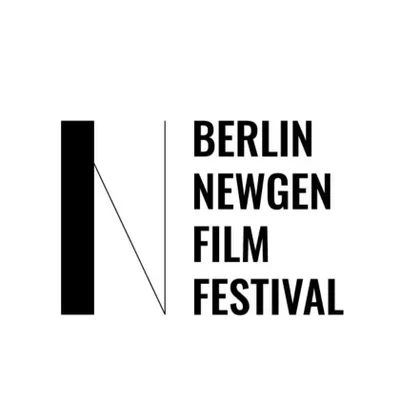Celebrating four years of NewGen Festival
The Berlin NewGen Film Festival celebrated its fourth year in October. Over the past four years, this non-profit community-driven, and small-scale festival has been finding its way to create a platform where Asian cinema and filmmakers can gain more visibility in German society.
Front entrance of Neues Off Cinema during the 4th Berlin NewGen Film Festival
NewGen’s three missions are firstly to bring both classic and innovative Asian films to audiences in Germany, secondly, to discover and support a new generation of Asian filmmakers who are shaping the future of Asian cinema, and lastly, to build connections with local Asian communities to address the challenges they are facing.
These goals are reflected in the festival’s programme, which includes feature films from across Asia, short film collections from emerging Asian filmmakers around the world, and collaborative events with local Asian communities.
Why is there a need for an Asian film festival in Berlin? And how does it manage to survive with limited funding and only a few staff members in a city populated with hundreds of film festivals each year? With these questions in mind, we spoke with the festival’s co-founder and director, Huangdan Zhao, to take a closer look at NewGen.
***
The cinema hall on opening night for the film “A Time to Live, A Time to Die.”
AVE: What made you want to start the Berlin NewGen Film Festival in the first place?
Huangdan: Back in 2022, I had just moved to Berlin and started working in the film industry myself. I wanted to create something that was both connected to my profession and meaningful to me personally. At that time, there wasn’t a real Chinese-language film festival in Berlin. It was also during the pandemic so there were many audiences eager to watch Chinese-language films. Through my work, I noticed that most Europeans only knew a few big-name Chinese-speaking directors and weren’t familiar with newer ones. That’s why I wanted to start a Chinese-language film festival focusing on young directors.
The pandemic was also a special moment. A lot was happening socially in China, and I felt that those of us overseas needed to do something to speak up. So, the theme for the first year of the festival was “Speak Up.” We wanted European audiences to see a different side of Chinese society, beyond the stereotypes and prejudices, such as being labeled as the “virus” or being seen as brainwashed by the government.
NewGen team in conversation with the audience at Colosseum Filmtheater.
AVE: It’s already been four years. Have you noticed any changes over time? For example, are there more Asian films being shown in Germany, or has the festival built stronger ties with local Asian communities?
Huangdan: Starting from its third edition, NewGen shifted from focusing solely on Chinese-language films to Asian films in general. There were two main reasons for this. From a film production perspective, co-productions are becoming more common. For example, in Southeast Asia, it’s often hard to find films produced by just one country. Many are transnational co-productions, and the same goes for Chinese-language films, where Asian collaborations are also increasing.
NewGen team preparing for the short film screening at Rollberg Kino.Additionally, there are more stories from overseas Asian communities. Through my work, I’ve come to realize that Chinese-language films should be discussed within the broader context of Asian cinema because Asian filmmakers face similar challenges internationally. As I mentioned earlier, only the most well-known directors tend to be remembered.
On a social level, over the past four years, Asian communities in Germany, especially in Berlin, have become more active. For example, BAFNET has been organizing various events to give Asian-German filmmakers more platforms and opportunities to showcase their work. The Korean communities have also been very active in cultural and social initiatives, and Impression Taiwan, a cultural organization, has been actively promoting Taiwanese culture and arts in Berlin.
Different Asian communities are becoming more vibrant and often support one another. I think this is partly due to the widespread discrimination Asians faced overseas during the pandemic, which led to movements like “Stop Asian Hate.” Since many Europeans can’t easily distinguish between different Asian groups, these communities realized they needed to collaborate to make their voices heard. Even though there sometimes are disagreements or misunderstandings, I’ve found that when people sit down and talk, those differences can be resolved, and they often discover they have much more in common than they initially thought.
“Drifting and Dreaming: Asian Diaspora in Film,” a pre-festival event co-hosted by the Berlin NewGen Film Festival, Impression Taiwan, and the Berlin Asian Film Network (BAFNET).AVE: What are some of the main challenges the festival is facing right now?
Huangdan: Like all film festivals, our biggest challenge right now is funding, whether that means relying on grants or finding sponsors. With the current economic downturn, people are less willing to offer large sponsorships. Audiences are also more hesitant to spend money to watch films.
The entire film industry, or the medium of film itself, is facing challenges. Viewing habits have shifted more toward streaming and short videos, and attention for feature films is decreasing. While cinephiles will always be there, attracting non-cinephile audiences has become a real challenge.
***
The NewGen team on the final day of the festival.AVE: And looking ahead, what do you hope for the future of the festival?
Huangdan: First, I really hope NewGen can become a stable platform in Berlin for screening Asian films. I also want to continue showcasing short films by emerging directors because it’s often hard for them to get noticed. I hope NewGen can serve as a platform to discover promising new filmmakers, especially those who haven’t yet been discovered by major festivals. That’s why I want NewGen to keep growing professionally. Besides, we’re also thinking about how to expand the festival’s scope, for example, by collaborating with other Asian organizations in Berlin to host events beyond film screenings, making the festival more diverse and engaging.
Author: Zhilin
Editor: Lisa
Photo credit: Haoyang Sun, Tongyin Pan
Berlin NewGen Film Festival
Seeking the Intersection between Asian cinema and contemporary society

